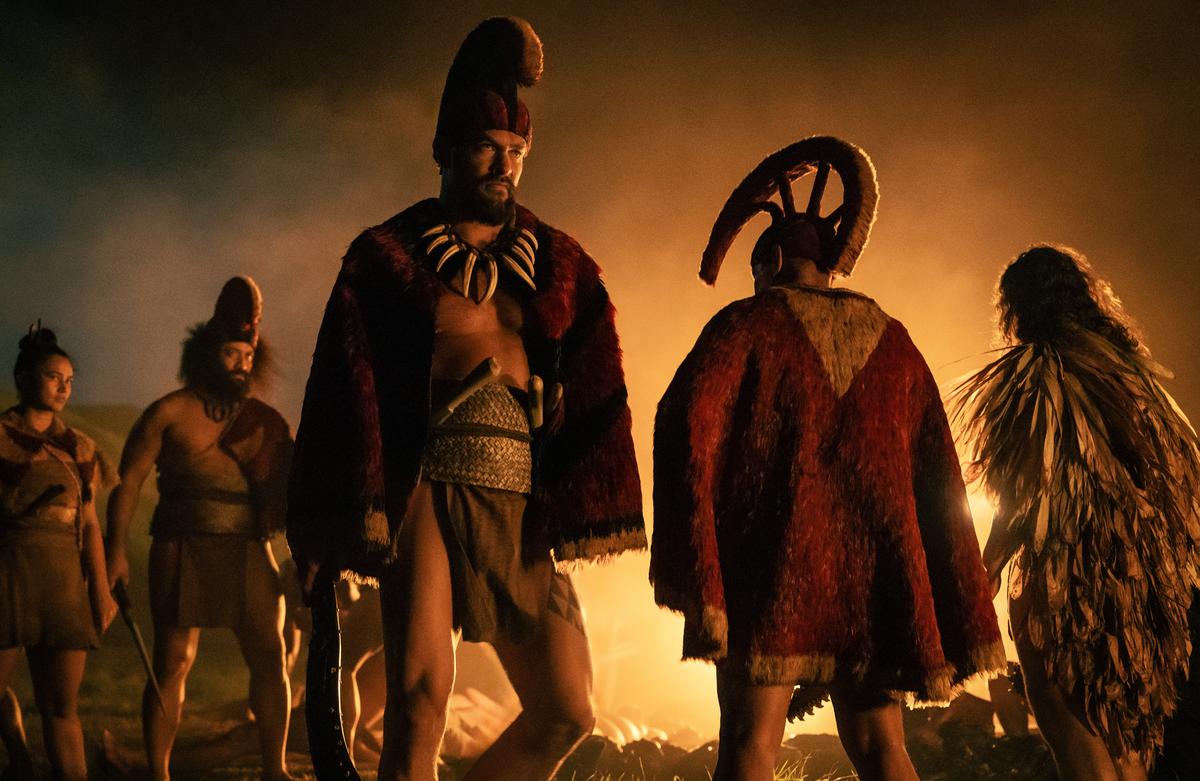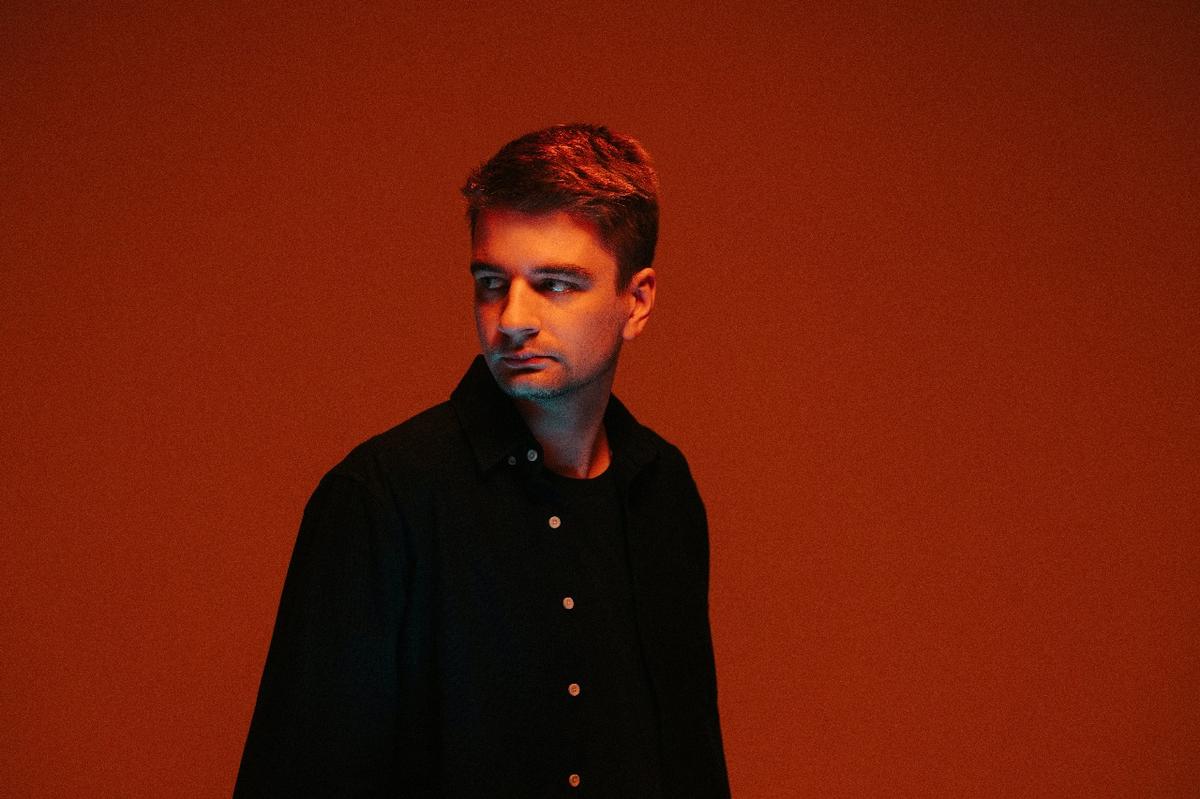British film composer James Everingham remembers the first thing he reached for when he felt unsure about a cue for Chief of War. “The touchstone was always traditional Hawaiian music,” he says. “The rhythms, the way we used vocals, the way the melodies were shaped… that was our starting point and something we returned to again and again.”
The Apple TV series, co-scored with Hans Zimmer, called for music with cinematic sweep and cultural immersion. Across nine episodes, Jason Momoa’s Ka‘iana travels from island politics to ocean battles to personal reckonings. “You’ve got Jason Momoa as the lead, and it isn’t just set in Hawaii,” James explains. “You’ve got the politics of the chiefs, these huge battles, romance — so many elements that need to be scored in a cinematic way, because this is ultimately entertainment. But Hawaiian musical culture had to be at the core of everything we wrote.”

Part of that meant knowing when to lead and when to step back. Much of Chief of War is performed in Ōlelo Hawai‘i, the island’s critically endangered indigenous language, whose cadence and melody often feel inherently musical. “If you put traditional Hawaiian music — sung in ʻŌlelo Hawai‘i — over dialogue in that language, it can be quite challenging,” James explains. Scene by scene, the team would decide whether to let Hawaiian vocals drive the score or to keep them atmospheric, allowing the dialogue to breathe. That could mean percussion, lyricless vocals, or the Hawaiian nose flute in place of sung lyrics.

A still from ‘Chief of War’
| Photo Credit:
Apple TV
Key to this was collaboration with Grammy-nominated Hawaiian singer Kamaka Iwa Kanakaole, who wrote lyrics that incorporated the events unfolding on screen. “Instead of just the vowels you usually might get in cinematic vocals, you can make out this real emotion in her voice, and it’s inherently tied to what’s happening,” James says.
In his toolkit of sounds were instruments few outside Hawaii have heard: the oeoe (pronounced “oi oi”), a hollowed-out gourd swung overhead to create a ghostly whistle; the pahu, a shark-skin drum; the puniu, a smaller knee-strapped drum used in hula; the kaʻekeʻeke, a bamboo idiophone with a tonal thud. Notably absent was the ukulele. “The ukulele is not from the Kingdom of Hawaii. It came later with the annexation. We tried to avoid the tropes,” he says.
If Chief of War broadened James’ musical vocabulary, it also reshaped his creative process. “I had to make a very conscious effort to keep things loose enough that when I go to Hawaii, when I meet these incredible artists, there’s space for that to come into the music,” he says. “Some people who know a lot more than I do about traditional Hawaiian music are going to put their stamp on it and take it to a whole other level.”
That brand of openness fits well alongside Hans Zimmer. The two have worked together on multiple projects, but James still notes moments that remind him why Zimmer is, well… Hans Zimmer. “He’s so great at understanding the core of the story, putting aside all the flashy things that might be on screen and really diving into the core themes and the identity of whatever project it might be,” he says. “For Chief of War, there are these themes of identity, belonging and cultural significance. And Hans is excellent at dialling into that.”
Zimmer also pushed him to step outside his comfort zone. “Sometimes when you’re co-scoring a project with someone, it’s easy to gravitate towards the scenes that come naturally,” James says. “Something I found surprising is actually the value in doing something that doesn’t come naturally… maybe figuring that out yields a more unexpected result.”

Their work on Chief of War comes after a curious overlap in their histories with one of the world’s great instruments. In 2020, with the Royal Albert Hall shuttered for the first time in more than a century, James led a small team to capture the voice of its 9,999-pipe organ for a virtual instrument library. “It was really a once-in-a-lifetime opportunity,” he says. “For the first time since it opened in the 1800s, it was empty and available.” Microphones were placed across the empty auditorium, a binaural pair in the Royal Box to catch the air and resonance as it swelled through the space.
Around that same quiet stretch of months, organist Anna Lapwood was also playing it under special access, breathing new life into the instrument most often heard at packed galas. There may just be a strange poetry in knowing Zimmer’s score for Interstellar, so defined by its own cathedral organ, never found its way to the Royal Albert Hall. “You probably have to put it down to access. It’s booked out every single day for major performances,” he says. And yet here was James, digitising a sound that Zimmer himself might have once chosen to craft one of the most iconic original scores of the 21st century, had timing and fortune aligned.
James says that his path to projects like these wasn’t born of a single cinematic epiphany. “A lot of people have that moment with John Williams,” he says. “For me, it was the classical music I was exposed to as a child — Bach, Beethoven, Brahms, Mahler. Rachmaninoff was just constantly playing in the house.” At seventeen, he recorded his first feature-length score at Abbey Road Studios. Within a few years, he was scoring Amazon’s Grand Prix Driver and working with artists like AURORA on the BBC’s Frozen Planet II.
Now based in Los Angeles, James has built a portfolio spanning television, documentaries, and commercial work, alongside producing sample libraries like Woodchester Piano and Fractured Strings. His latest feature work was on Paul Schrader’s 2024 documentary The Blue Angels, a chronicle of the United States Navy’s flight demonstration squadron — the same outfit that famously inspired the fighter-pilot swagger of Top Gun. It’s a neat twist of fate that Zimmer also helped score Top Gun: Maverick, the long-awaited sequel to Tony Scott’s 1986 original.

James Everingham
| Photo Credit:
Special Arrangement

F1 director Joseph Kosinski directed Maverick, and James cites him as a dream collaborator for his ability to maintain high-entertainment value with grounded realism. He also names Scott, who directed the original Top Gun, as a formative influence. “Many directors are influenced by him,” James says, “and maybe one day that legacy will live on in someone else I get to work with.”
For now, James stands as a convergence of these many serendipitous threads. Chief of War seems to have distilled something essential about the work he wants to keep doing. “A lot of the time, film music is a puzzle,” he says. “It’s a continuous discovery of what the musical world is for the project… and ideally something that hasn’t really been heard before.”
Chief of War is currently streaming on Apple TV
Published – August 12, 2025 12:59 pm IST


